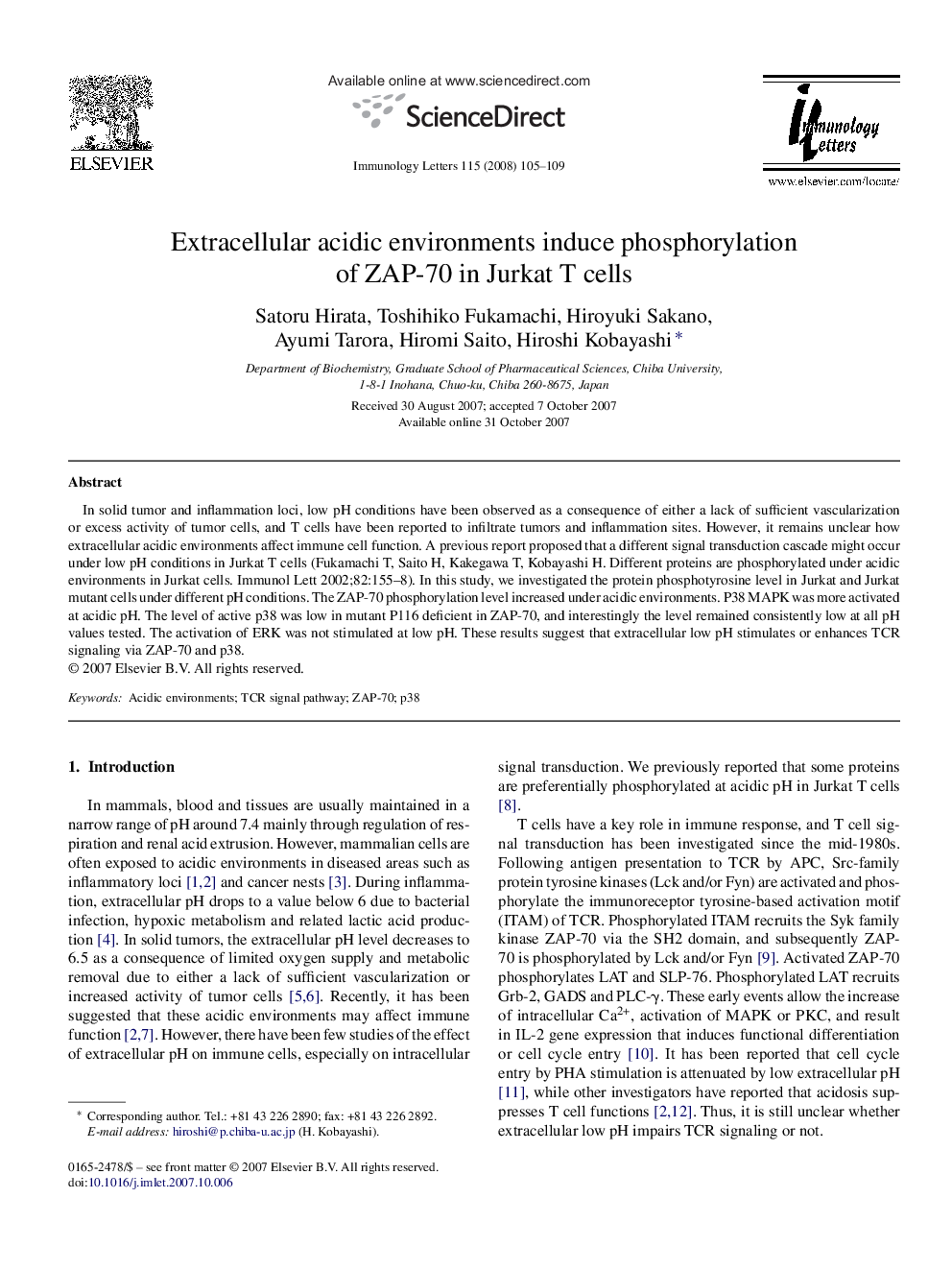| Article ID | Journal | Published Year | Pages | File Type |
|---|---|---|---|---|
| 3356184 | Immunology Letters | 2008 | 5 Pages |
In solid tumor and inflammation loci, low pH conditions have been observed as a consequence of either a lack of sufficient vascularization or excess activity of tumor cells, and T cells have been reported to infiltrate tumors and inflammation sites. However, it remains unclear how extracellular acidic environments affect immune cell function. A previous report proposed that a different signal transduction cascade might occur under low pH conditions in Jurkat T cells (Fukamachi T, Saito H, Kakegawa T, Kobayashi H. Different proteins are phosphorylated under acidic environments in Jurkat cells. Immunol Lett 2002;82:155–8). In this study, we investigated the protein phosphotyrosine level in Jurkat and Jurkat mutant cells under different pH conditions. The ZAP-70 phosphorylation level increased under acidic environments. P38 MAPK was more activated at acidic pH. The level of active p38 was low in mutant P116 deficient in ZAP-70, and interestingly the level remained consistently low at all pH values tested. The activation of ERK was not stimulated at low pH. These results suggest that extracellular low pH stimulates or enhances TCR signaling via ZAP-70 and p38.
